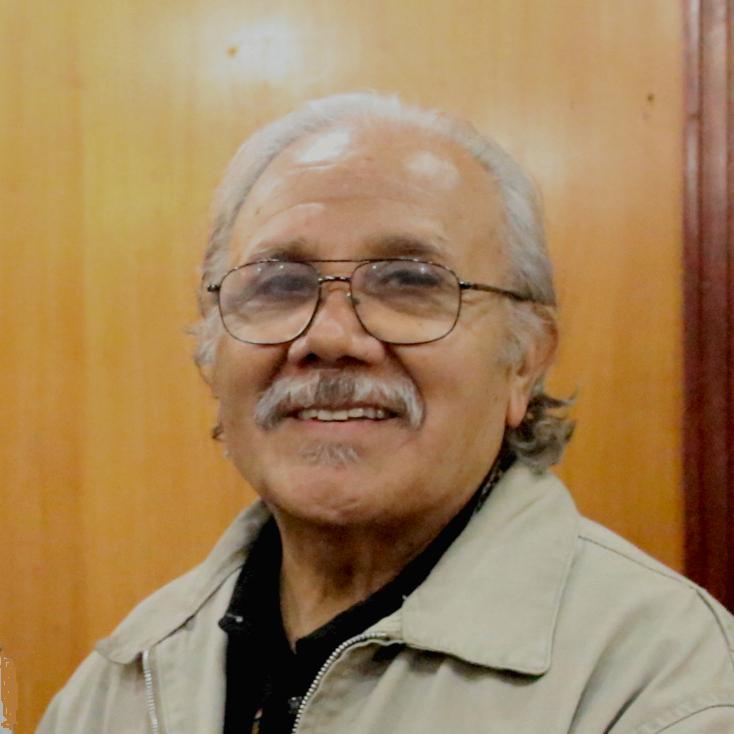14.Masacres y Desapariciones en América Latina, por Nilo Cayuqueo / Massacres and Disappearances in Latin America by Nilo Cayuqueo
14.Masacres y Desapariciones en América Latina, por Nilo Cayuqueo / Massacres and Disappearances in Latin America by Nilo Cayuqueo
Esta presentación fue transcrita y subtitulada en su idioma original. Con este fin, tienen que hacer clic en el botón 'CC' que se encuentra en la parte de abajo, derecha del video. También pueden activar los subtítulos en otro idioma, y tienen que hacer clic en las opciones del video, después seleccionar la parte de los subtítulos, más adelante escoger la opción de 'traducir automáticamente' y finalmente elegir el idioma de su elección.
Durante su presentación histórica sobre los ‘Masacres y desapariciones en América Latina’, Nilo Cayuqueo comparte lo emocionante que es reencontrarse con la gente de las primeras Conferencias. Evoca las diferentes masacres, desapariciones de niños y golpes militares sufridos por las comunidades indígenas de Abya Yala (América) y denuncia la apropiación de los territorios originarios a pesar de las ‘mercedes indivisas’ concedidas por la Corona española.
Explica lo difícil que era venir a Ginebra al principio de la lucha en comparación con hoy día y revela que su intervención en la Conferencia de 1977 fue considerada como una afrenta a Argentina y que tuvo que esconderse y salir del país. Describe su lucha y las varias conferencias y reuniones que se organizaron a favor de los Pueblos Indígenas y la creación del Consejo Indio de Sud América.
Enfatiza que los delegados del 1977 y 81 son «gente de acción» y que se debería redactar un documento con propuestas para que la lucha indígena sigua avanzando. Nilo Cayuqueo subraya el compromiso de los primeros delegados: «dar pasos a un Estado que responda a la diversidad cultural, a las necesidades de la gente, al medioambiente, al futuro de nuestros hijos, a las culturas y a la autodeterminación de los Pueblos originarios.»
//
This presentation has been transcribed and subtitled in its original language. To that end, you have to click on the 'CC' button at the bottom, right hand side of the video. You can also activate subtitles in another language, by going into the settings of the video, then clicking on the subtitles section, then choosing the option 'auto-translate' and finally the language of your choice.
In his historical account on the “Massacres and Disappearances in Latin America”, Nilo Cayuqueo shares how exciting it is to meet again with people who attended the first Conferences. He mentions the various massacres, disappearances of children and military coups suffered by the indigenous communities of Abya Yala (America) and denounces the appropriation of the indigenous territories despite the ‘mercedes indivisas’ (undivided lands) that were granted by the Spanish Crown.
He explains how difficult it was to come to Geneva at the beginning of the struggle compared to today. He reveals that his intervention at the 1977 Conference was seen as an affront to Argentina and that he had to hide and leave the country. He describes his struggle and the various conferences and meetings that were organized in favor of Indigenous Peoples, and the creation of the Indian Council of South America.
He emphasizes the fact that the delegates from 1977 and 1981 are “people of action” and that a document containing proposals for the continuation of the indigenous struggle should be drafted. Nilo Cayuqueo stresses the commitment of the first delegates: “lay the foundations for a State that meets the needs of cultural diversity, of the people, of the environment, of our children’s future, of the cultures and of the self-determination of Indigenous Peoples”.
United Nations, Geneva, Switzerland / Naciones-Unidas, Ginebra, Suiza


